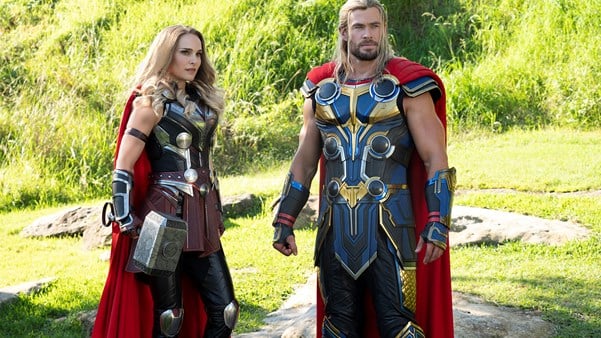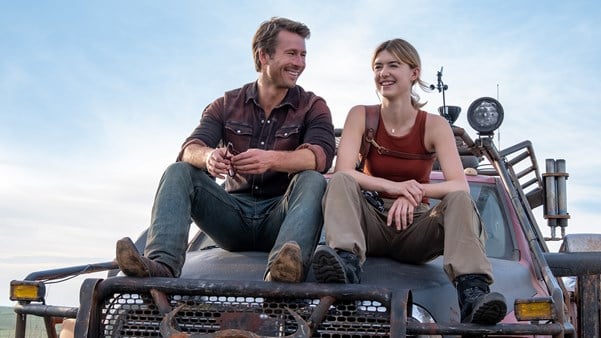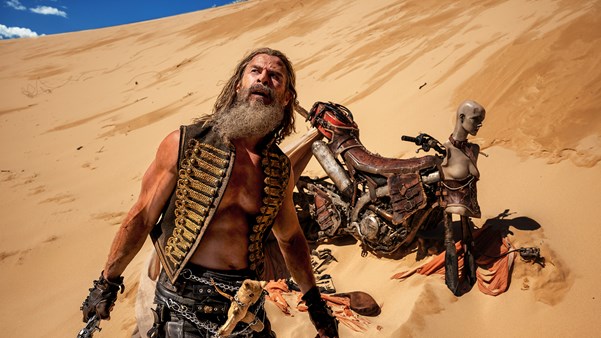Jess Bacon argues that the studio’s self-referential superhero movies had become too reliant on past victories. But recent developments show that Marvel is clearly turning the page on the Avengers – and constructing an exciting new universe.

This article contains Deadpool & Wolverine spoilers.
Six years after Avengers: Endgame (2019), the Marvel Cinematic Universe seems burdened by its glorious, record-breaking past. Even Ryan Reynolds’ Deadpool, who has, for corporate-licensing reasons, been separate from parent company Disney’s larger worldbuilding strategy, offers a homage to the Avengers in his 15-rated, buddy-blockbuster threequel Deadpool & Wolverine. Pulling Hugh Jackman out of superhero retirement after his character’s death in Logan (2017), the long-awaited crossover finally welcomes the X-Men franchise – that belonged to 20th Century Fox before Disney’s 2019 acquisition of the studio – into the fold of the ever-expanding MCU.
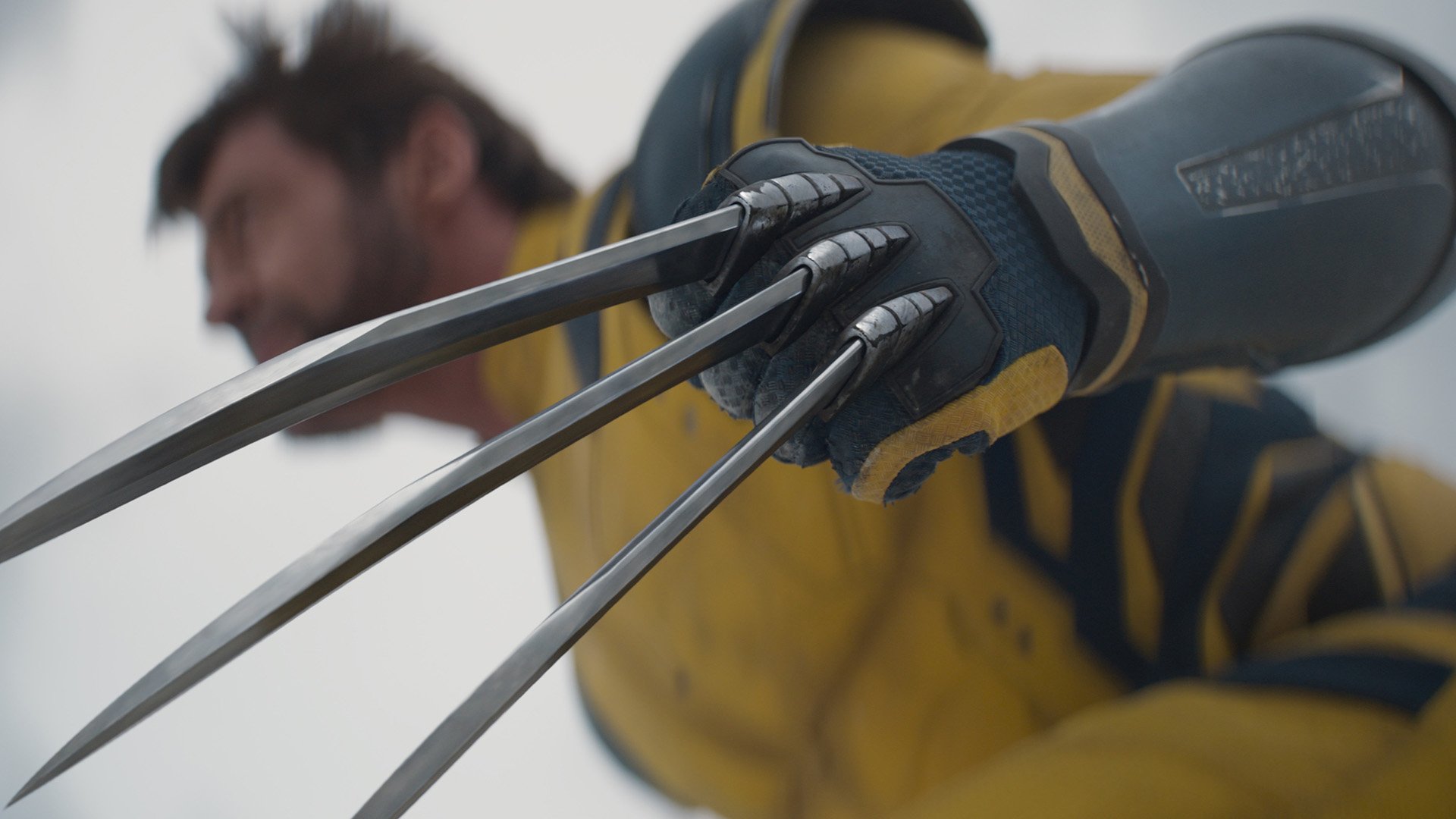
Distinguished as the foul-mouthed masked vigilante who can cut to camera to offload his quick-witted commentary, Deadpool takes the opportunity to extend this meta self-awareness to the MCU itself in the film. He says it’s had ‘miss, after miss, after miss, since Endgame’ and tells Wolverine he’s ‘joining at a low point’. Wade doesn’t shy away from making Marvel the butt of its own jokes.
One thing that remains sacred and unscathed by Wade’s satire is the Avengers. It’s telling that this rogue antihero, who has little respect for anything, acknowledges the significance they have on both his quest to ‘matter’ and the legacy of the universe he sits within. Earth’s Mightiest Heroes are still untouchable by anyone’s sharp tongue, as they forged what Matthew Macfayden’s timeline-policing agent Paradox calls the ‘greatest universe of all time’. In its own terms, Deadpool & Wolverine firmly establishes that the Avengers are the ‘anchor being’ of the MCU, without whom the entire timeline of the franchise ceases to exist. This never-ending nostalgia – which extends to other Phase Five properties in Marvel’s interlinked universe – has started to detract from the next generation of heroes rising through the ranks.
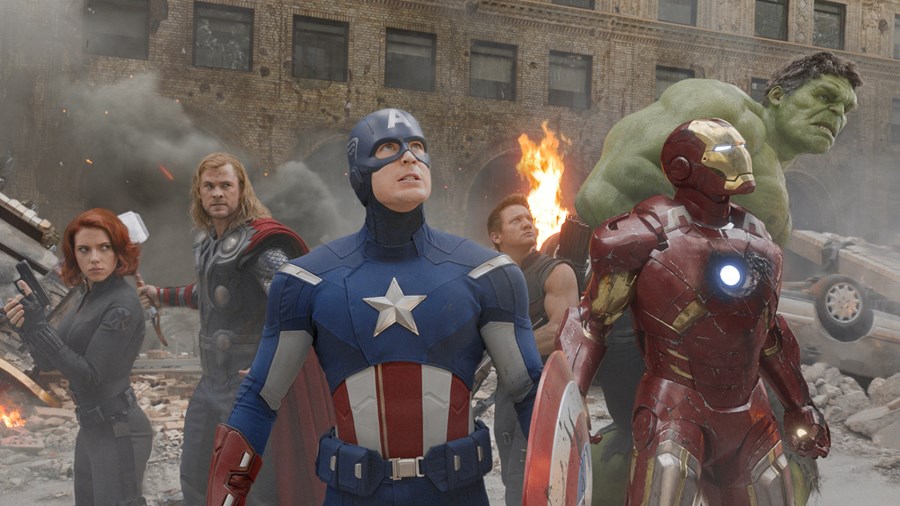
The Avengers (2012)
But who can blame Marvel for reliving its tremendous, industry-reshaping past? Its Infinity Saga became the highest-grossing film franchise of all time, with the MCU having earned over $30 billion at the worldwide box office to date. Not to mention the final two-parter, Avengers: Infinity War (2018) and Avengers: Endgame, which offered an unparalleled cinematic superhero experience. In a staggering achievement of storytelling, these films tied together a decade of superhero films into an interconnected narrative that culminated in a climatic crossover that served as an emotional end to the first three, defining phases of the MCU. Understandably, Marvel is still riding the high of that impressive feat.
Deadpool & Wolverine – even down to the credits’ blooper reel – is a tribute to Marvel’s past, namely its time under 20th Century Fox. The film gives Elektra, Blade, Laura (X-23) and Gambit the ending they never had under their former owner, since their characters only made one-off appearances in solo projects. Their return isn’t to reignite fan interest in a spin-off series. Instead, it’s to firmly close a rushed, almost forgotten chapter in their cinematic history that Marvel knows is still of significance to fans.
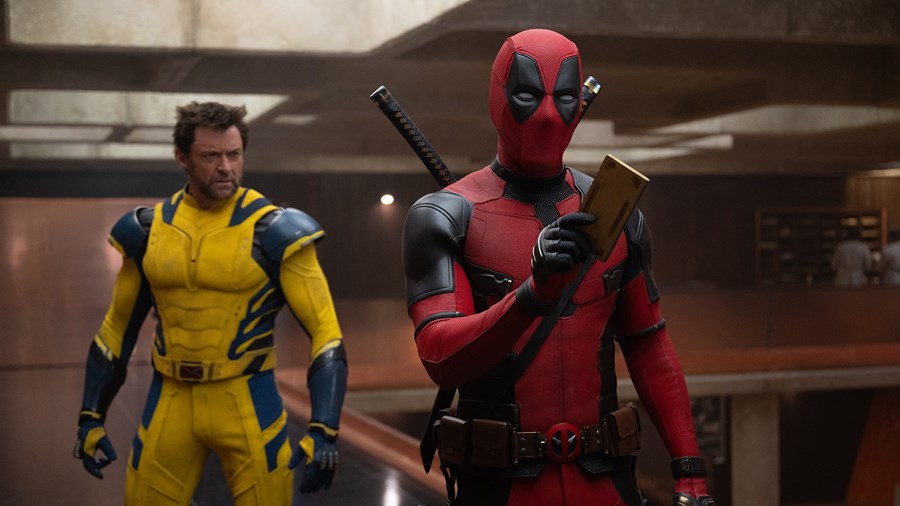
Deadpool & Wolverine (2024)
In a surprising twist, the former Avenger actor Chris Evans makes a cameo as his first superhero, Johnny Storm from 2005’s Fantastic Four (and its sequel). It was, undoubtedly, one of the best kept secrets of the movie that delighted fans, as Marvel made use of its expansive backlog of characters to revisit in the multiverse. The humorous twist in the reveal of Evans’ catchphrase ‘Flame on’ – which Wade assumes will be ‘Avengers assemble’ – proves that, despite the innate appreciation and adoration for the Infinity Saga, Marvel is aware that it needs to move beyond the Avengers. Rather than reintroductions or surprise cameos, it must honour the Avengers and preserve their legacy while keeping them safe in the archive.
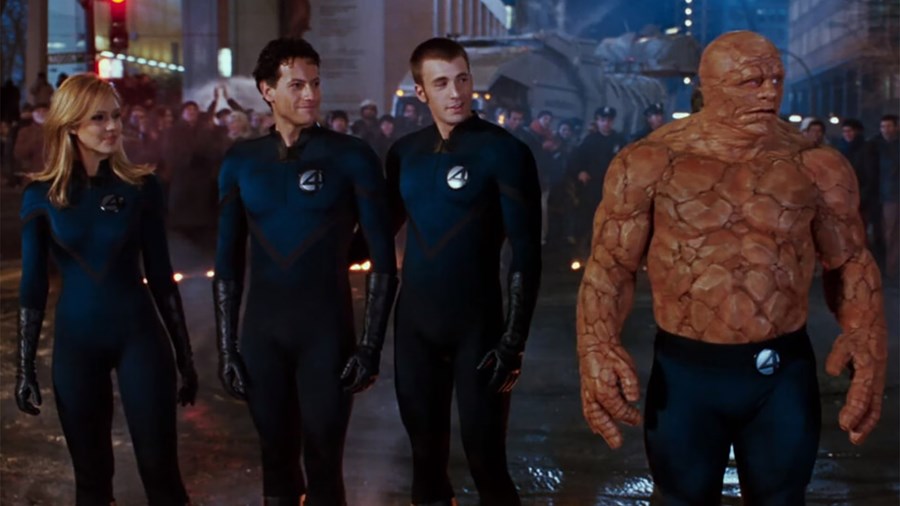
Fantastic Four (2005)
After relying on its record-breaking past to determine its future content – think Loki’s spin-off TV series, which was released after the character is killed off in Infinity War, but set in 2012 (undermining claims that there would be ‘no resurrections this time’) – Marvel has to focus on establishing the next generation of heroes. Complications arose with this progression after Jonathan Majors, a leading actor set to play the villain in the upcoming slate of films, was charged and convicted of domestic assault (Majors denies causing the plaintiff any physical harm). Swiftly dropped from the franchise, his character, Kang, has not been recast, but instead Marvel has announced an alternative Thanos-level threat that wears a familiar face.
There is a seismic shift on the horizon, which was announced to great excitement at San Diego Comic-Con, that hinges on Iron Man actor Robert Downey Jr returning to the MCU as big bad Victor Von Doom. The major reveal might bring back an original key player, but there’s a stark difference: the hero will now play the villain. It’s a move that firmly brings the chapter of this era of heroes to a close.
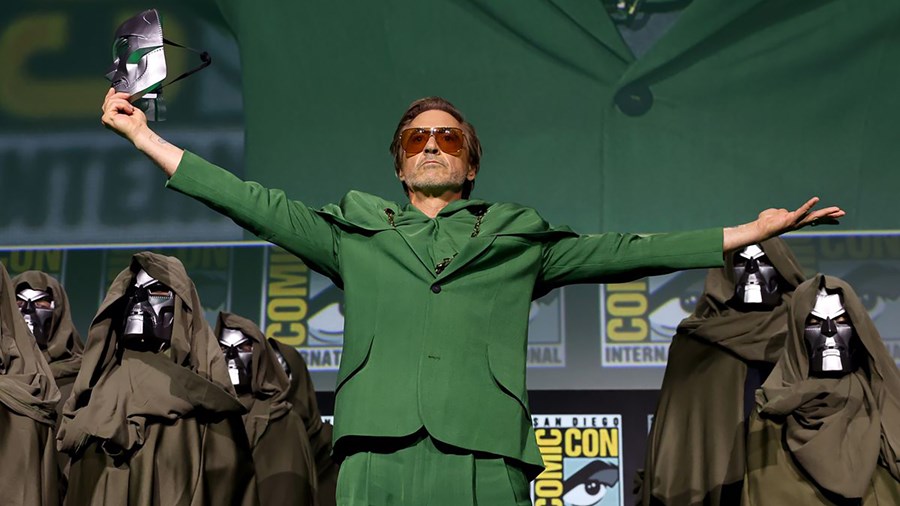
Robert Downey Jr at Comic-Con this summer
After the commemoration and celebration for everything the Infinity Saga was to cinema and to fans, Marvel has started to forge a path forward, away from the original Avengers and into a new, uncharted domain. Fronted by the young Avengers, such as Kate Bishop (Hailee Steinfeld), Kamala Khan (Iman Vellani) and Yelena Belova (Florence Pugh), the universe has expanded exponentially in recent years – and in terms of racial and gender diversity – to reinvent the franchise. Now, it’s time to consolidate that legacy through character development, just as the 21 films that wove together prior to Endgame did.
Character-driven stories, seen in the Iron Man trilogies through to the Thor tetralogy, enrich the ensemble because there’s a direct trajectory throughout the franchise that sustains the heart and emotion of the storylines within the interlocking universe. Seeds have been sown for this next stage, from Shang-Chi and the Legend of the Ten Rings (2021) to The Marvels (2023), but Marvel has to combine all of these threads to capitalise on what it does best and form a self-referential, interconnected universe.
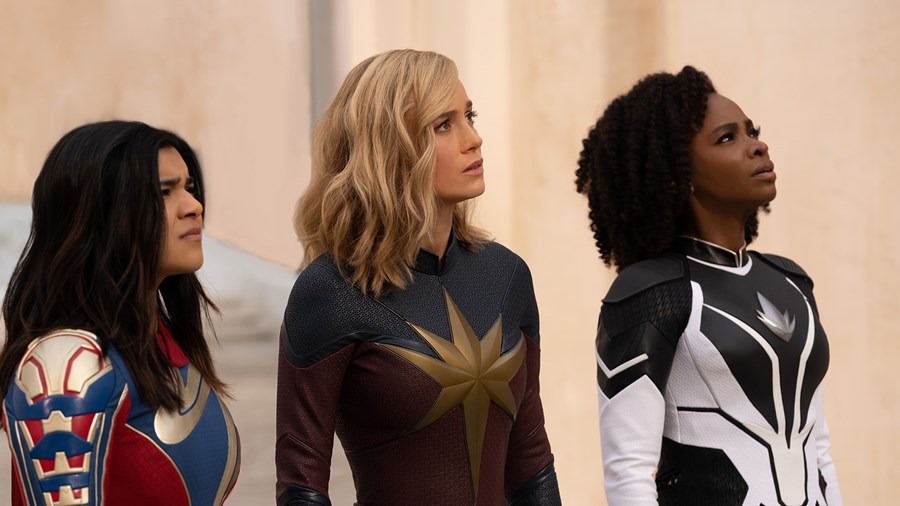
The Marvels (2022)
Thankfully, there’s still a host of rich characters to explore. Releasing next February, Captain America: Brave New World (2025) sees Sam Wilson (Anthony Mackie) adjust to his position as the Star-Spangled Man in a fractured and tense political landscape. Six years after Endgame, this extended solo story, which explores the next era of Earth’s Mightiest Heroes, marks an exciting new chapter and much needed change of pace for Marvel to move beyond its period of nostalgia and build to something bigger. With two Avengers movies on the horizon and a Fantastic Four reboot, Marvel is storming towards a reimagined future. The MCU will always have the Avengers in their peripheral vision, but their sights are also set on what’s to come: the next era of their superhero empire.
WATCH DEADPOOL & WOLVERINE IN CINEMAS


